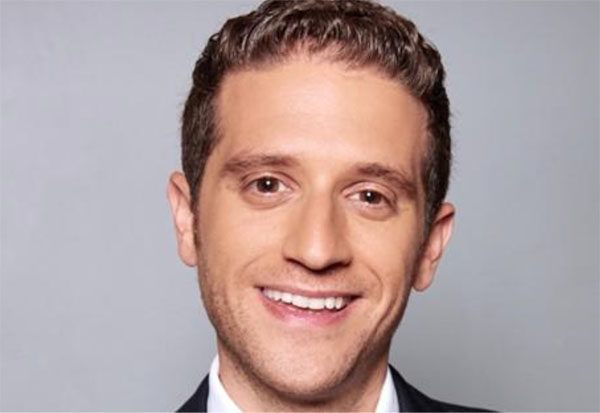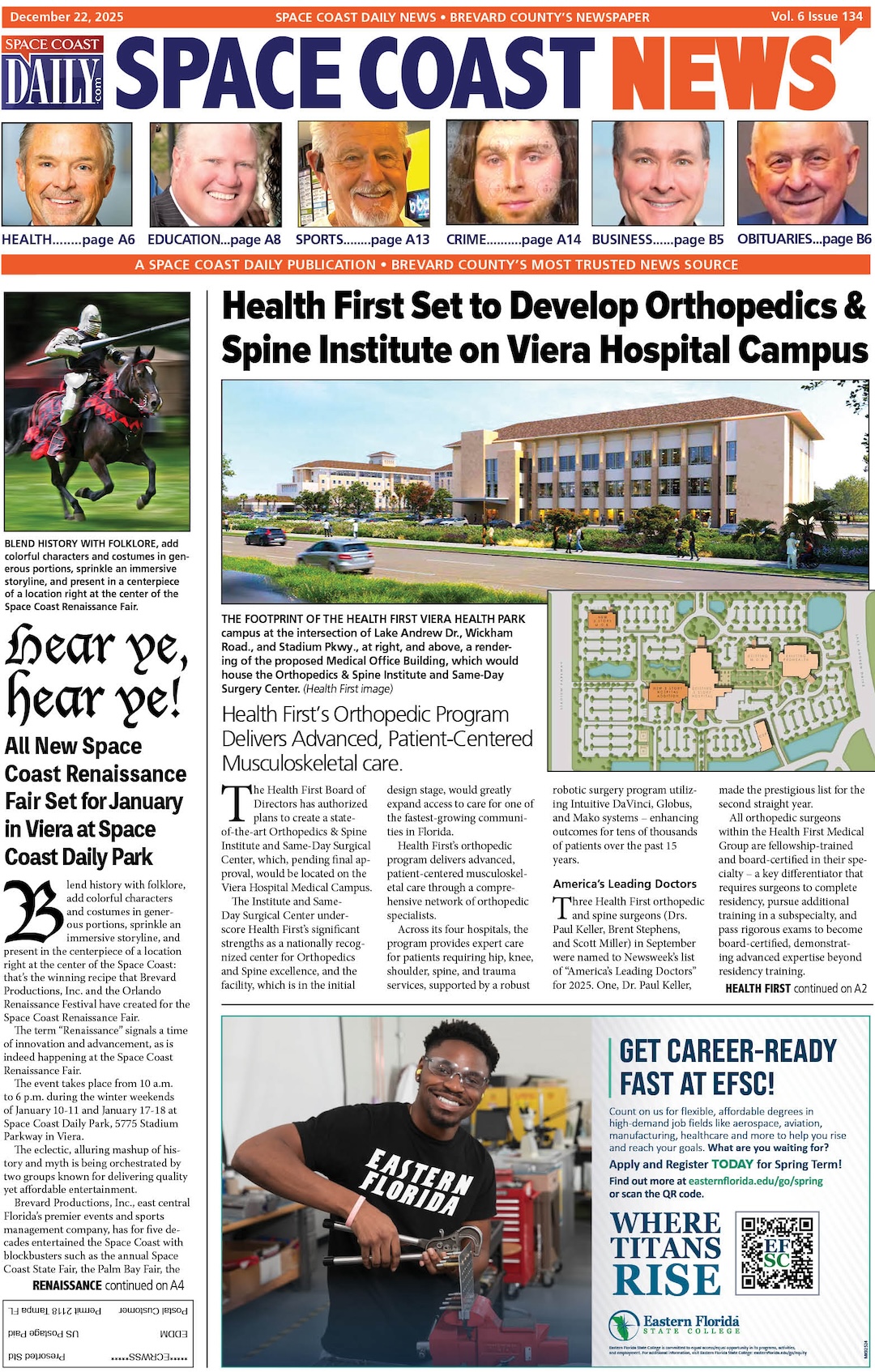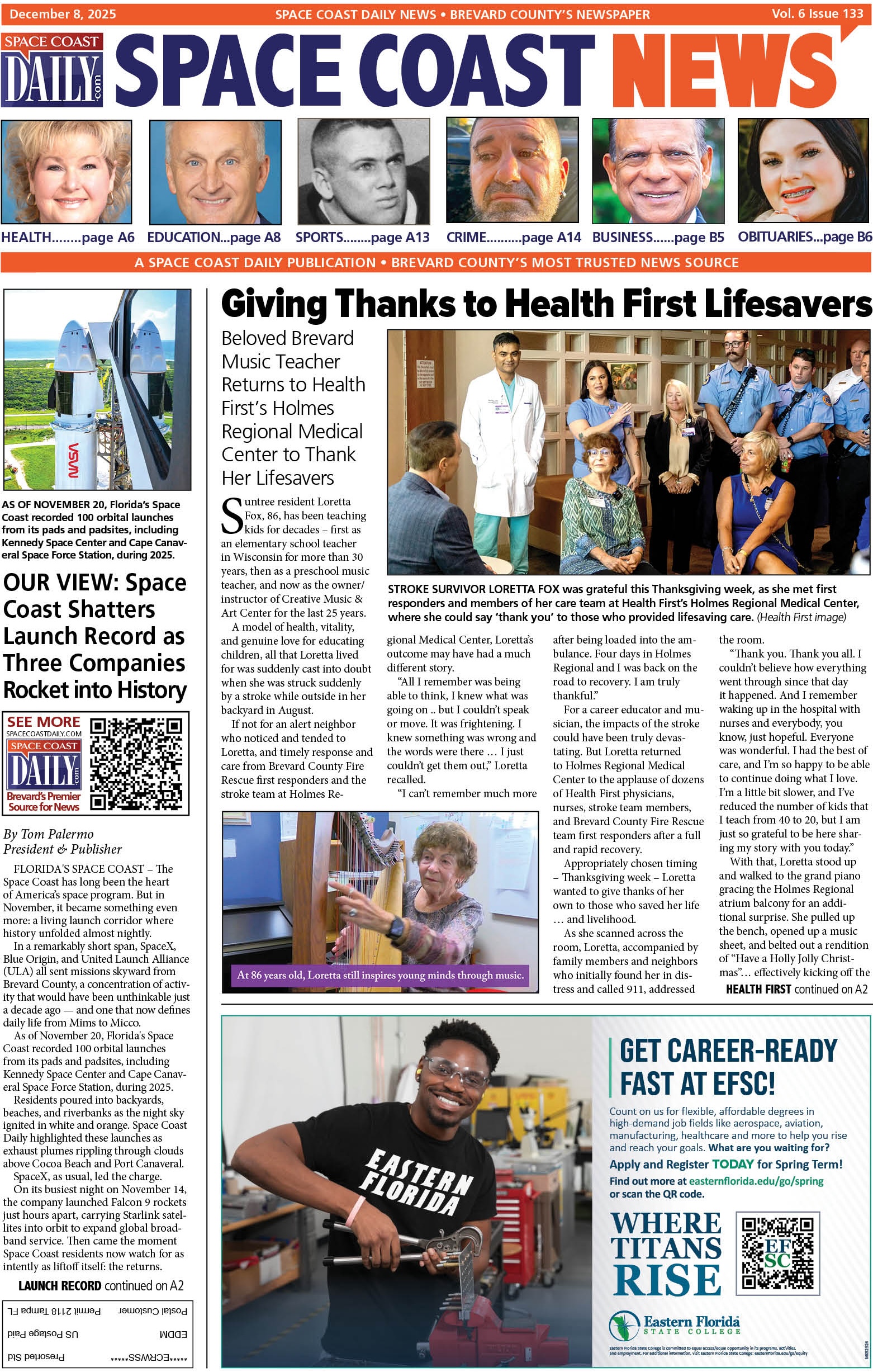The Personal Growth Journey Behind Jordan Fried’s Business Success
By Space Coast Daily // May 1, 2025

For some, starting a business is about making money. For others, it’s about solving problems. For Jordan Fried, it’s a vehicle for personal growth and development – a perspective shaped by an unconventional upbringing that normalized entrepreneurship as a way of life.
“I love building businesses not because of the wealth that comes from them. Those are kind of byproducts,” Fried explains. “I love starting businesses. I think they’re amazing personal development experiments. They’re almost crazy goals. Can I actually do that? That’d be crazy if I could pull this off. Let me try.”
This philosophy has guided Fried through multiple successful ventures, from VPN services to blockchain technologies, domain name investments, and private equity. Each business represents not just a commercial opportunity but a personal challenge to overcome – and in the process, to grow.
Entrepreneurship as Inheritance
Fried’s comfort with entrepreneurial risk traces directly to his family background. As the son of deeply entrepreneurial parents in a family of ten children, including two adopted African American brothers and three sisters with Down Syndrome, Fried grew up seeing business creation as normal.
“I had the really great fortune of having both parents that were extremely entrepreneurial,” he reflects. “The idea of starting a business is so scary and so risky to someone who was raised by a teacher or a doctor or a lawyer in a lot of cases. When in my mind, there was nothing scary about it because it was literally what mom and dad were doing on a day-to-day basis.”
His father launched several ventures before finding success with one that supported their large family. His mother founded one of America’s largest nonprofit adoption agencies. This environment made entrepreneurship feel like the default path rather than a risky deviation.
“It’s kind of like the boy who was raised by wolves. Having wolves as parents is the normalized way of, ‘Hey, everybody doesn’t howl at the moon.’ I just thought that’s what people did,” Fried says. “That was my normal, everybody doesn’t start businesses. I just thought everybody started businesses and it was actually not normal for me to go get a job.”
Learning Through Doing
Without formal business education, Fried has approached entrepreneurship as an experiential learning process. His first venture began with just $5,000 in savings, no college degree, and self-taught programming skills – hardly the pedigreed background that typically attracts venture capital.
“I didn’t have a college degree, no venture capital firm would possibly back me. Y Combinator was not taking kids with my background from Buffalo at the time. I was not a trained engineer. I self-taught how to program,” he recalls.
This outsider perspective forced him to focus on solving real problems and generating immediate revenue rather than chasing funding rounds. His first business grew from a blog post titled “How to Watch the American Netflix Library in Europe,” which went viral and identified a clear market need. Initially promoting other companies’ VPN services, he eventually built his own.
“My first business was started on the back of a long tail Google search query,” Fried explains. “People go to Google when they have a pain, they have a question, they want to ask it, and then they can search for content that helps solve that pain or gives them that solution.”
This problem-first approach continues to guide his business development strategy, whether organizing humanitarian flights through Israel Friends after the October 7th crisis or purchasing israel.com for $2.5 million as a platform to champion the country. As with puertorico.com, Fried sees these digital properties as more than investments—they’re vehicles for creating meaningful impact and connecting with decision-makers who can help address real challenges.
The Instinct for Opportunity
Rather than formal market research, Fried relies heavily on intuition to identify emerging opportunities – what he describes as “emotional instinct.”
“What I lack in formal education and IQ, I like to think I make up for with emotional instinct and knowing if I’m early to something,” he says.
This intuition has repeatedly positioned him ahead of market trends. He entered the VPN business before Edward Snowden’s revelations drove widespread privacy concerns. He purchased the nft.com domain for $2 million in 2020, before the NFT boom. He moved to Puerto Rico after Hurricane Maria, seeing potential where others saw devastation.
“I happen to think I’m very early to something,” he says of Puerto Rico. “I got into VPNs before Edward Snowden, that was the case in blockchain… I’ve had a few being in the right place at the right time examples.”
While analytics tools like Google Trends inform his decisions, Fried’s entrepreneurial approach combines data with instinctive pattern recognition – a skill honed through multiple business cycles.
Reverse-Engineering Success
Fried’s domain name investments exemplify his unconventional approach to business development. Rather than starting with a problem and building a solution, he sometimes begins with a premium asset like puertorico.com and works backward to identify business opportunities.
“In this case, this is kind of just an investment thesis and a reverse order,” he explains. “I’ve developed a lot of real estate in Puerto Rico, and these are just side projects and passions of mine of like, ‘Hey, I happen to think I’m very early to something.'”
This reverse-engineering approach requires flexibility and creativity. With puertorico.com, Fried discovered the domain was already generating significant traffic despite minimal development. By analyzing search queries and visitor behavior, he identified content gaps that official tourism resources weren’t filling.
“I first came to visit here [Puerto Rico] for the taxes and you stay for what they say, ‘Este La Deto,’ you stay for the Enchantment,” he explains. “It’s an unbelievable enchanting place.”
This personal connection transforms business ventures from purely commercial endeavors into passion projects with potential for both profit and positive impact.
Building for Legacy
Unlike entrepreneurs focused on quick exits, Fried approaches business building with a multigenerational perspective. He sees his ventures as creating lasting value beyond his lifetime.
“I think really cool legacies are solving really hard problems and building really great brands that live for a really long period of time,” he says, noting the rarity of such examples in the technology sector.
This long-term orientation informs his recent shift toward private equity investments in established, cash-flowing businesses with sustainable business models. “Our goal is to own these things forever,” he notes, contrasting his approach with the typical venture capital timeline.
The name of his holding company, Immutable, reflects this philosophy. “The importance of the word immutable is I really like this idea of something that’s immutable because there’s very few things in life that are immutable,” he explains. “We’re not immutable. We will all die, we’re born and we die.”
This mortality awareness, sparked by reading existential literature in high school, drives his urgency to create meaningful impact through entrepreneurship. “I could die at any point in time and I just want to do as much as I can before that point comes and leave this place better than I found it.”
Entrepreneurship as Problem-Solving
While financial success has enabled Fried to acquire premium domain names and invest in diverse businesses, he emphasizes that money remains secondary to the challenge of problem-solving.
“The byproduct of a business is making a bunch of money,” he observes. “I don’t think that’s the reason you start a business. It’s because you’re doing something that’s super cool. You’re solving a really hard problem. And the harder the problem, the more you make.”
This problem-solving orientation extends to his work in Puerto Rico, where he sees entrepreneurial solutions as more effective than government programs. Comparing his tourism website to the official government portal, he notes: “We have come close to surpassing them in both traffic and eyeballs for quite literally a few hundred thousand dollars a year in budget. And I think it just really highlights an entrepreneur will always solve the problem where a government just inefficiently spends capital to do it.”
For aspiring entrepreneurs lacking traditional advantages, Fried’s journey offers an alternative roadmap – one that prizes personal development, problem-solving, and intuition over formal credentials, fundraising prowess, or technical brilliance. In his view, the greatest entrepreneurial education comes not from business schools but from the act of building itself.
“Business at any size is just about people and understanding people and understanding what people are great at,” he concludes. “All credit to my mom and my dad for who they were as people and showing us kids that like, ‘Hey, it’s not so crazy to be crazy like that.'”












